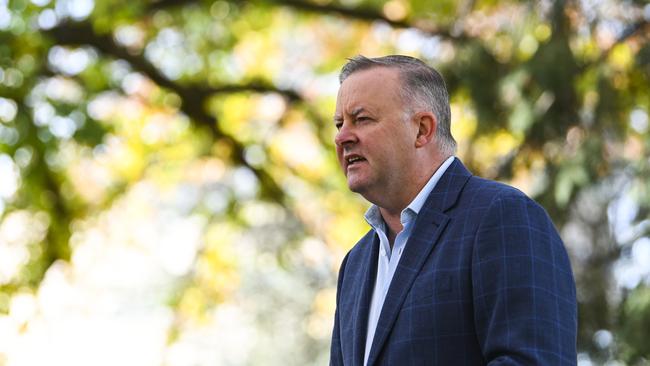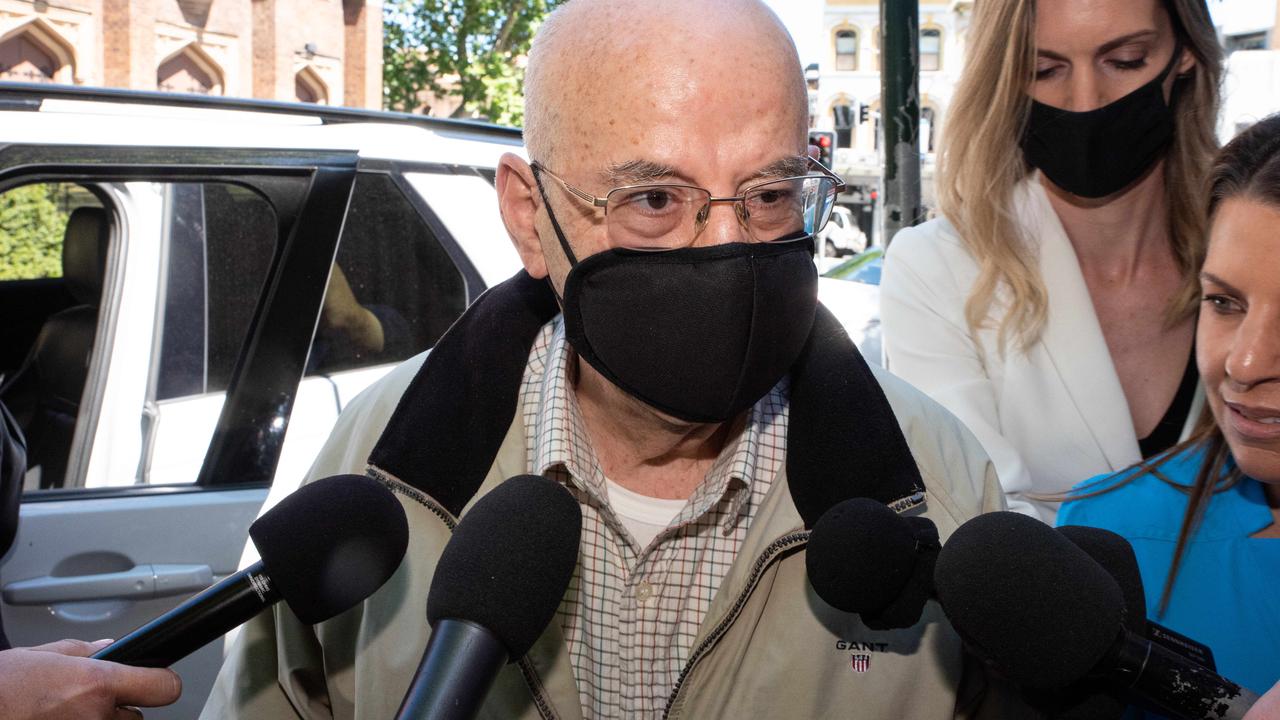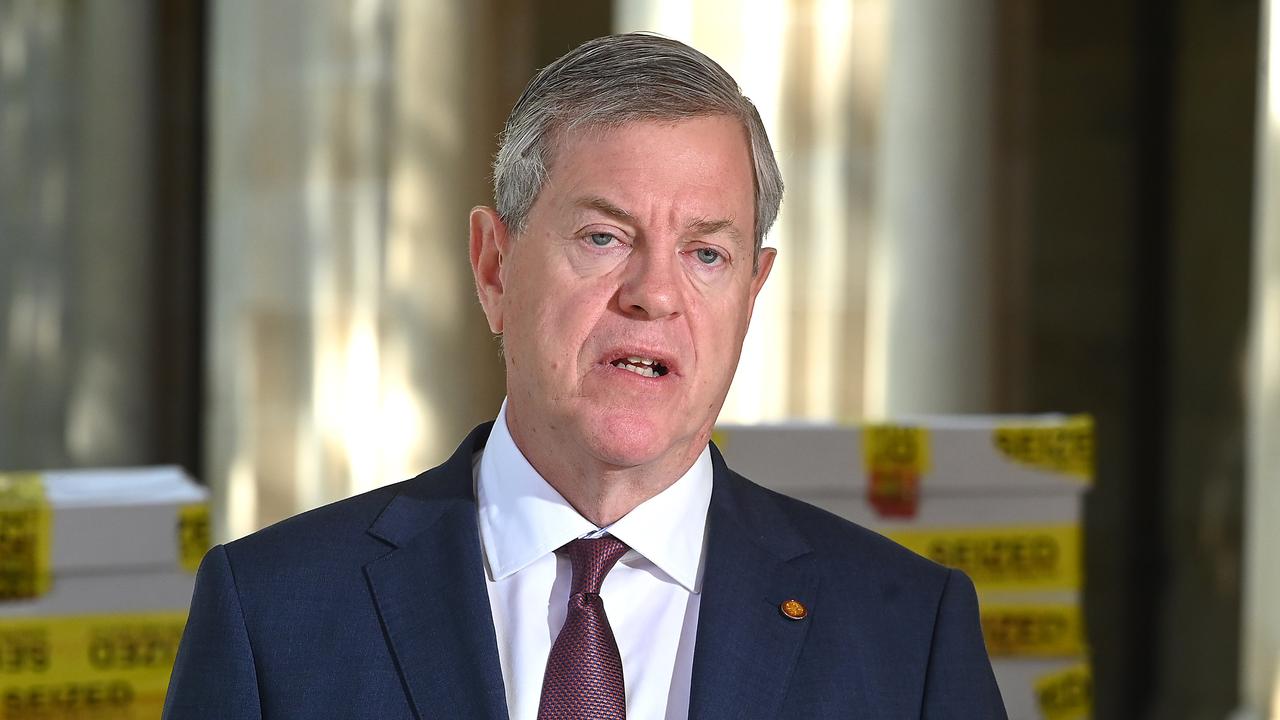Coronavirus: Anthony Albanese gears up fight to extend JobKeeper pay
Industry leaders have demanded Labor backs down on threats to scuttle key workplace changes to help keep businesses afloat.

Industry leaders have demanded Labor backs down on threats to scuttle key workplace changes to help keep businesses afloat during the COVID-19 crisis, claiming any delays could negatively impact on employers and cost jobs.
As economists and mental health experts warned of a “lost generation” of jobless youth if unemployment rates were not quickly reversed, Labor has set-up a parliamentary showdown this week over changes to the Fair Work Act and whether to expand and extend the $130bn JobKeeper scheme.
Ahead of Treasurer Josh Frydenberg and Finance Minister Mathias Cormann delivering statements to federal parliament on Tuesday updating the nation on the economic impacts of coronavirus, new forecasts warn the budget will be plunged into a $160bn deficit this year.
A Deloitte Access Economics report released on Monday reveals a 10 per cent hit to national income next year totalling $200bn and warns of a long-term unemployment crisis if the jobless rate cannot be turned around within 12 months.
Following the release of the COVIDSafe roadmap last week, Western Australia unveiled its four-step plan on Sunday to restart intrastate travel, allow gatherings of up to 20 people and open pubs, clubs, restaurants and swimming pools from next Monday.
Victorian Premier Daniel Andrews, the last national cabinet leader to move on relaxing social restrictions after NSW announced its plan on the weekend, will announce his economic recovery roadmap on Monday, including reopening schools by the end of the month.
Senior opposition MPs on Sunday said Labor would ramp-up attacks on the government over workplace changes to facilitate the JobKeeper scheme and attempt to strike out a regulation introduced last month shortening the negotiating period for changes to enterprise agreements from seven days to 24 hours.
Employers had demanded that it was necessary to respond quickly to restructure workforces in response to the crisis. Unions cried foul, claiming it would be abused by businesses to usher in changes under the pretence of COVID-19.
Industrial Relations Minister Christian Porter said he would lobby crossbench senators this week to “stress the importance of giving businesses every reasonable assistance to survive through this increasingly difficult period, should the Senate consider any disallowance”.
According to the government, there had been no abuses since the workplace changes were enacted, but only a small number of employers had so far used them.
Australian Industry Group chief executive Innes Willox called for the Senate to reject Labor’s opposition to the government’s Fair Work amendment, intended to get payments out the door quickly instead of changing 121 awards and a high percentage of 11,000 enterprise agreements.
“Many enterprise agreements were reached in better times and contain provisions which are impeding businesses in responding to the COVID-19 crisis,” he said. “Where changes to an enterprise agreement are agreed upon between the employer and the employees, the new regulation enables the changes to be implemented without delay.
“The regulation shortens the period that the employees must have access to a copy of a proposed variation from one week to one day but, importantly, before approving the variation, the Fair Work Commission must be satisfied that the employees understood the proposed variation and genuinely agreed to it.”
Mr Willox said in the current environment, short-term changes to laws, regulations and industrial instruments will “often be appropriate”. “Where changes have been implemented, unless there is clear evidence that particular measures are being abused, then they should be allowed to stand,” he said. “To switch off or reverse measures that have so far helped save hundreds of thousands of jobs would be consigning employees and employers to the scrap heap.
“What we need now are measures to build confidence, demand and jobs in our economy. The bills for the measures taken to prop up our economy for the past two months will already take years to pay off.
“We don’t need to turn Australia into a long-term non-productive welfare state with millions of people living hand-to-mouth and week-to-week. That would take generations to pay off. The focus instead needs to be on creating the conditions to getting people back to work and the economy back on track.”
In addition to the 121 modern awards, there are four million Australians covered by individual agreements, some tied to awards. The government has argued it could take months to process claims if the Fair Work Act was not temporarily amended.
Mr Porter last month said changes to the Fair Work Act would be in place for a minimum six-month period to facilitate the JobKeeper payments.
Council of Small Business Organisations Australia chief executive Peter Strong slammed Labor’s push to wind back industrial relations changes and opposition industrial relations spokesman Tony Burke’s call to toughen fines for businesses that do not properly implement social-distancing rules.
“Small business owners are likely to start thinking Labor isn’t serious. This sort of thing might have been OK to say last June, but this is a different world,” Mr Strong told The Australian.
“If Labor was serious, if the Liberals were serious, we would have a summit to change the industrial relations system. It’s not working. We need a pandemic-proof industrial relations system. Labor is lacking any common sense on this … we need to remove complexity.”
Australian Chamber of Commerce and Industry chief James Pearson said he was focused on “ensuring the JobKeeper scheme was working as intended”. “Come September, if we are not out of the woods, serious consideration should be given for the JobKeeper payment to continue beyond this point, particularly if the government has not spent the full amount allocated,” he said.
Addressing his partyroom on Monday, Anthony Albanese will attack the Morrison government’s “snap back” platform.
“The Prime Minister’s talk of ‘snap back’ … foreshadows a return to the Liberals’ agenda. Marketing slogans won’t ease the burden of this pandemic, or hasten recovery,” Mr Albanese will say. “Let’s not snap back to insecure work, to jobseekers stuck in poverty.”
Mr Albanese will set out his post-COVID-19 vision, which includes higher wages, less casualisation of the workforce and “significant investment” in social and affordable housing. Mr Burke said Labor would launch attacks on the government’s handling of the COVID-19 pandemic in parliament this week, declaring it was time to “get back to scrutiny”.
Additional reporting: Richard Ferguson







To join the conversation, please log in. Don't have an account? Register
Join the conversation, you are commenting as Logout